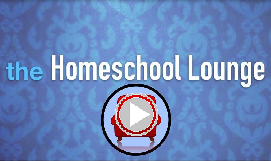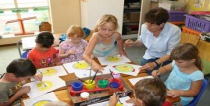Beginners Guide
Kliek hier vir die Afrikaanse weergawe
What is home schooling?
South African law makes provision for three kinds of education: home education, private schools and state schools. In homeschooling, a parent, usually the mother, teaches her children at home rather than sending them to a formal private or state school.
Why do parents choose home schooling?
Homeschooled children perform better
Research shows that home learners perform much better than their institutionalised peers. The reason is obvious: homeschooling offers the ideal learning environment, in which there is a very low ratio of one teacher to just one to six learners. As such, home-schooled children get infinitely more attention than children at a school, because even the most caring teacher is just not capable of providing the same level of attention to so many more children.
To cater for special needs children
Homeschooling is also suited to children with special needs, such as those with exceptionally high IQs, gifted children or children with special learning needs. Parents can organise their homeschooling in a way that best provides for their children's specific needs and abilities.
With homeschooling, all subjects do not have to be taught at the same level. If a child has an aptitude for maths, for example, there is no reason to stop their early progress to the next grade. Equally, if a child has not mastered this year's Afrikaans, they can simply return to the previous year's books and, together with their parents, find the cause of the difficulty and work to fix it.
You can find more information on homeschooling children with special needs on the National Challenged Homeschoolers Associated Network website.
For personal reasons
Many parents choose to homeschool for religious or philosophical reasons. They may be unhappy with the values presented in the formal school setting and they may also want to spend more time teaching their children about their religion. Homeschooling accommodates this.
Some parents may choose to homeschool because they value strong family relationships. Homeschooling gives parents more time with their children, and siblings can also spend more time together. Although home-schooled siblings may fight and argue with each other like other children, they also often become best friends.
Other parents want to protect their children against bullying, the values transferred by peer groups or the drug culture that may be present in formal schools.
Should I register with the Department of Education?
The SA Schools Act requires parents to register their children for education if they are being taught at home. This registration must be done at the provincial department of education.
In practice however, some provincial departments do not have the administrative capability to register children for home education. Some of the larger provincial departments may have limited administrative capabilities, but unfortunately the officials in these departments have a very narrow understanding of home education and the law on home education. These officials often require parents to meet all sorts of requirements that are not stipulated by the law. Because of this, more than 95% of homeschooling parents in South Africa do not register with the department. Parents should contact the Pestalozzi Trust for guidance on this issue.
How must I take my child out of school?
It is your right to choose the best type of education for your child, be it formal school education or home education. You do not need to justify your decision to the school; you merely need to inform them. You do not need to wait until the end of the year or the end of the term. If it is in your child’s interests to receive home education, you should take you child out of the school as soon as possible.
Wait until your child is home from school on the last day that they attend. Avoid mentioning your plans beforehand, to prevent possible victimisation. Then the FATHER should phone the school (do not write a letter and do not visit them). Schools give fathers fewer hassles than they give mothers. Tell the school: "I have transferred my child to home education. I shall email you my arrangements for paying any outstanding fees. Thank you for the good things my child experienced at your school. Please forward the transfer certificate." Avoid giving any more information. If you get questions or arguments, wait politely for a chance to speak and then say: "I am grateful for your commitment to my child's best interests. However, I cannot discuss this over the 'phone or answer your questions at this stage. Please put your concerns in writing so that I can discuss them with my wife and my advisers". Avoid saying anything more and avoid putting anything in writing except the financial arrangements.
Can I send my child back to school?
Many parents are concerned that they will not be able to send their homeschooled children back to a formal school if circumstances change and they need to do so. A public school is not allowed to discriminate against children who have been homeschooled or use tests to place children in a certain grade. The admission policy for public schools states that: “26. Learners are to be admitted to public schools and placed in different grades in the school according to the age requirements published in the same notice. 11. The governing body of a public school may not administer any test relating to the admission of a learner to a public school, or direct or authorise the principal of the school or any person to administer such a test. ”
Can any parent do homeschooling?
Mothers have been uniquely created to be able to teach their children. A mother's protective instinct means she almost always knows what is in the best interest of her children. A mother who can teach her children basic life skills, such as how to say "Please" and "Thank you", can also homeschool her children.
Does a parent have to be a teacher or be highly qualified?
Extensive research on the topic shows that the parent’s qualifications do not have any influence on the performance of the home learner. A mom needn't know everything. A mom who knows everything cannot be the very valuable role model of a mother who knows that she doesn't know everything, but who isn't afraid to find out whatever is needed. Children should develop a problem solving attitude, without which they can hardly tackle life.
"Let us look in the back of the book for the answers. Or perhaps we'll find the solution in the other textbook that we have on the shelf...; or let us give the maths teacher next door a call; or maybe the electrician, Oom Boet, will know - he knows his maths! Or what about the internet; or..."
Problem-solving skills and a good attitude will probably become the most important academic tools in your child's life.
How much time does it take?
Primary school children in homeschooling take 2 to 3 hours per day to complete all their work (homework included) and secondary school children take 3 to 4 hours. As a result children have more time to play, read, dream, socialise, enjoy their hobbies, help in the house and in the garden or make music. In short, they have time to live a normal life.
Learning materials for home schooling
There are ample learning materials available for homeschooling in South Africa. Some have been developed locally and some have been imported from abroad. Some are on computer, some are partially computerised, others make use of textbooks and some follow a unit studies approach. As such, a wide variety of approaches is available, one for each possible situation.
The materials are usually easy to use. Many homeschoolers also make use of distance education facilities, which a parent with a child in home education can use almost independently.
You can browse this website for curriculum suppliers as well as notices on curriculum expos in different regions.
There is no such thing as a prescribed curriculum or a curriculum that is best for all homeschoolers. Parents are responsible for choosing the curriculum that is most suited to their specific family. There are, however, organisations that provide a consultation service to help parents choose a curriculum that is suitable for their circumstances.
Life is the curriculum
Home schooling takes place within life, amongst people of various ages, in actual life situations. One of the most difficult things to accept when starting home schooling, is that home schooling is very different from state schools or private schools.
When you are home schooling, and a pipe suddenly bursts, the plumber's visit becomes a wonderful learning opportunity for the whole family. In home schooling one fits the academics in around Grandma and Granddad's sudden visit, or a lesson is built around the spider that the youngest discovered just outside the kitchen door.
This is because in home schooling the curriculum consists of the whole of life. The child is prepared for life while experiencing life to the full.
What about socialization?
Contrary to some opinions, socialisation in homeschooling is not a pressing problem.
Research confirms what many homeschooling parents instinctively realise: that children in homeschooling do not have a problem with socialisation. Home learners on average see the same number of people as their peers in state or private schools. The difference is that they see people from all walks of life and from all age groups. Therefore they learn to get along with all sorts of people, which is excellent preparation for the modern career world, in which one seldom works with a large group of people who are all the same as you. You are more likely to find yourself being part of a small group of people who differ widely.
A homeschooling mother once contacted an adventure centre and received the following feedback on socialisation from the organisers: “The problem with homeschool groups is that we find that our team building and conflict resolution programmes simply fall flat because the children don’t fight! Also, the groups are usually mixed-age and the older children automatically help the younger children.”
What about sport?
There are many sporting opportunities for homeschoolers. Besides sports such as swimming, tennis, horse riding, golf and ice skating, private clubs are increasingly being established where homeschoolers can practise sports such as athletics, rugby, netball and cricket, for example. Outstanding sportsmen and women often find that they can spend more time on their sports while homeschooling.
A number of organisations also make it possible for home learners to take part in sport on a local, provincial, national and even international level.
What does home schooling cost?
The cost of homeschooling can be anything from R300 to R30 000 per month, depending on whether a formal curriculum is used or not, what type of curriculum is used and what you spend on extra-curricular activities. There are also many free resources available on the internet.
Homeschooling is often considered a very expensive form of education, because one of the parents must stop working. However, if the costs associated with both parents working outside the house are taken into account, homeschooling is not necessarily that expensive. These costs include tax, school fees, school uniforms, after-school care, transport, pocket money for food and snacks at the school, etc. If all these costs are taken into account, it’s possible that parents could be spending more than they are earning by both working.
If families budget carefully, they might find that it is not impossible to live comfortably on one income. Homeschooling can be significantly less expensive than a formal school education, especially in areas where the schools are very expensive.
Also, because home education requires less time than school education, parents could work part-time. Or, both parents could work full-time, but on different shifts. Parents can also cooperate with other parents or families to share the home education responsibilities.
Parents that work from home or run a business from home can combine home education with work. Children can help in the business, so gaining a learning experience that no school can offer.
Support in home schooling
Do not regard your curriculum supplier as your only support group. Curriculum suppliers do what their name says: they supply a curriculum or learning materials. You can join a full spectrum of support structures, each with its own function. In this way you will receive comprehensive support and security, and you will improve your chances of having a satisfactory, successful homeschooling experience that will be sustainable in the long run. Some of the support structures available to you are:
Pestalozzi Trust
The Pestalozzi Trust is the legal defence fund for home education in South Africa. It guards the interests of homeschoolers and offers peace of mind to its members. The Trust informs its members of their rights and obligations as homeschoolers and keeps them abreast of educational happenings in the country. Membership is only available to homeschoolers who have not been in conflict with the educational authorities regarding their homeschooling.
SA Homeschoolers
The SA Homeschoolers online platform is an initiative of the Association for Homeschooling. The mission of SA Homeschoolers is : "Empowering parents to choose the best education for their children."
SA Homeschoolers offers the following services :
- Operating a findable and accessable website on home education in South Africa
- Provide a safe platform for parents to get into contact with support groups, discussion forums and learning centres.
- Provide a channel through which the suppliers of educational products and services can reach the market of parents that have decided to choose home education.
Local support groups
You can join a local support group or even start one. For mothers these offer a shoulder to cry on and, usually, also a new perspective on their children's behaviour. For children it is important to meet other homeschoolers and to realise that there are many perfectly normal children who are also homeschooling!
Mailing lists and Facebook groups
There are various discussion groups and support groups where parents can come together. More details are provided under menu option "Support" on this website.
How to start homeschooling?
- Determine your goals. Reflect together as a family on your ideals for your children. What would you like your child to be like in 10 or 15 years' time? Someone who knows right from wrong? Someone who can think and act independently? Someone who can look after themselves and who can work independently?
- Obtain information. Read up on homeschooling, buy an info pack, attend information days, chat to other homeschoolers and find out what the various curricula are like.
- Join support structures to keep yourself up to date on developments on the homeschooling front and to become part of the network of homeschoolers in South Africa.
- Enjoy it every day and be thankful for the privilege of being able to work with your child. Relax and cut back on your other commitments to ensure a stress-free beginning to your homeschooling.
How to keep it up
Homeschooling is one of the most rewarding, meaningful experiences you will ever have in your life. For your children too, every day in homeschooling is a gift.
- Be prepared to change direction. When you start out homeschooling, be prepared for a significant change in your own life. You will get to know your children and yourself better and you will learn to enjoy each other's company. You will grow individually and you will do, learn and enjoy things that you never planned to. As a family, you and your children will grow much closer; life-long friendships are often formed this way.
- Expect changes in your community. The role of your homeschooling family within your extended family and in your community usually changes, since you will increasingly have to account for your homeschooling choice. In the process you might make enemies, but often, also unexpected friends. Homeschoolers often recruit many people for homeschooling solely by the example they set in their lives.
- Become involved. As your homeschooling progresses you will become more involved with supportive structures and make use of information sources. In this way you will become more and more involved in the homeschooling community itself and will be able to help others. Homeschoolers usually also promote good education in society.



































